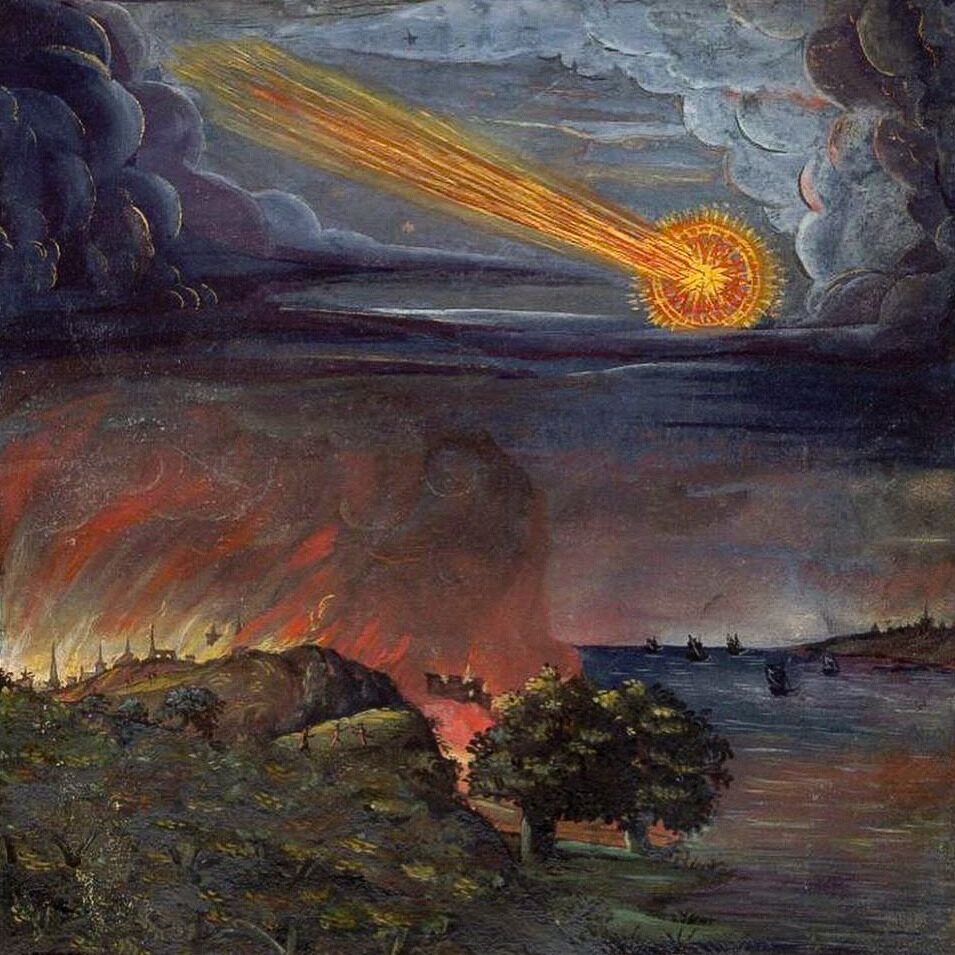Jag lyssnar på Gästabudet och de pratar om systemromanen. Det får mig att dra ihop några trådar jag samlat på, även om det kanske inte passar in helt i den genredefinition som bl.a. Agri Ismaïl refererar i avsnittet. Hans roman Hyper (ej läst, men läst en del om) fick mig att tänka på en artikel om Lydia Kiesling och hennes roman Mobility, där hon försöker fånga hyperobjeketet oljeindustrin.
Thinking ecologically about global warming requires a kind of mental upgrade,” Timothy Morton, the environmental philosopher, has written, “to cope with something that is so big and so powerful that until now we had no real word for it.” In 2008, Morton tried to invent one: hyperobject. The term doesn’t necessarily connote a value judgment, that this enormous thing is good or bad, but simply that in its hugeness it is inescapable, like air. To wrap one’s mind around the idea of a hyperobject is to accept that we, humans, “can’t jump out of the universe.” And according to Morton, being able to acknowledge the scale of a phenomenon as all-encompassing as, say, climate change, to name it, might be the first step toward actually doing something about it.
Hyperobjects abound in our globalized world: the internet, fast fashion, microplastics—things that cannot easily be measured using a single metric. A character in Lydia Kiesling’s new novel, Mobility, tries to explain the concept and lands on this: “It’s something so big and sticky with so many parts that it can’t be seen, something that touches so many other things.” Something, another character offers, like the oil industry. Amy Weiss-Meyer, “What Do You Do When You Realize You’re Ruining the Earth?“, The Atlantic, 17 augusti 2023
Emile Zolas romancykel Les Rougon-Macquart är nog något annat än en systemroman enligt de mest liberala kriterierna. Men jag kom att tänka på den eftersom författaren Brandon Taylor (Real Life, Filthy Animals, The Late Americans) har spenderat ohemult mycket tid åt att läsa den och koka ned för oss andra i essän “Is it even good?“.
Les Rougon-Macquart encompasses almost every area of social life, from the rural bourgeoisie (The Fortune of the Rougons, The Conquest of Plassans, The Bright Side of Life) to the working poor (Germinal, The Assommoir, Earth) to the heights of government power (His Excellency Eugène Rougon) to the markets and commerce of Paris (The Belly of Paris, Money, The Kill, The Ladies’ Paradise, La Bête humaine) to the art world (The Masterpiece, Nana) to the theatres of war (La Débâcle), and everything in between. At times, it feels as if nothing that exists is outside Zola’s intimate knowledge. He seems familiar with every screw and bolt in the machines that lower men into mines and the trains that carry passengers from Le Havre to Paris, every nuance of the inner workings of the French parliament, every change of fashion on the boulevards. Then there is the size of the cycle itself, twenty novels filled with events and with hundreds, perhaps thousands, of characters, many of whom reappear, creating a taut network of narrative relations. I planned to summarise the books and describe this network, but had to stop when I realised that this in itself would result in a book-length account. Brandon Taylor, “Is it even good?“, London Review of Books, 4 april 2024
Den apokalyptiska systemromanen, kontrafaktisk men inte fantastik, exemplifieras av Hari Kunzru med Elliot Ackerman och James Stavridis 2034 och 2054, Lawrence Wrights The End of October (som handlar om en global pandemi, utgiven precis i början av 2020) och Kim Stanley Robinsons The Ministry of the Future. Kunzru jämför den här sortens romaner med Zolas tidigare nämnda storskaliga roman, men också med den sortens scenarioplanering som The RAND Corporation använde(r) sig av för att hjälpa regeringar att planera för alla möjliga framtider.
Multi-stranded, terse, often anchored in character just enough to drive the action forward, these books invite us to take an elevated, panoramic view of events that extend too far in space and time to be grasped by a single narrative consciousness. Conflict, climate change, pandemics and natural disasters offer ways to contemplate our interconnection and interdependence. At its best, this kind of fiction can induce a kind of sublime awe at the complexity of the global networks in which we’re enmeshed: A butterfly flaps its wings in Seoul and the Dow crashes; a hacker steals a password and war breaks out. Hari Kunzru, “This Is the Way the World Ends (According to Novelists)“, New York Times, 29 mars 2024
I ett (tyvärr sällsynt) utskick av Missiverna nämnde jag en roman av Aurélien Bellanger om/med Walter Benjamin, men han har skrivit fler:
Aurélien Bellanger writes ambitious novels. His favoured technique is to take transformative phenomena as his starting point and then synthesize whole eras. His debut, La Théorie de l’information (2012), explored the impact of the rise of the internet. L’Aménagement du territoire (2014) swapped the web for the TGV, France’s high-speed rail network. Bellanger has since published fiction on urban development (Le Grand Paris, 2017), European integration (Le Continent de la douceur, 2019) and reality television (Téléréalité, 2021). All of these novels are marked by the author’s restless obsession with technical detail and include long, encyclopedic passages of intense description Luka Werde, “Document of barbarism“, TLS, 14 april 2023
